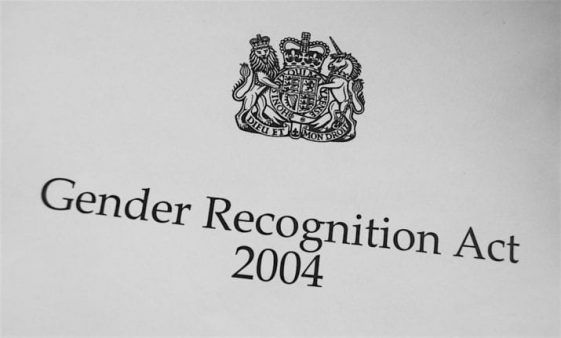On “Choosing Reality”: How Public Discussions of Gender Recognition Go Wrong, and What We Can Do About It: Part 2 Rejecting the Ontology-First Approach
21 February 2022
Content advice: transphobia.
In the last blog post, I identified what I call the ‘Ontology-First Approach’ to gender recognition. This approach says that disagreements about gender recognition should be settled by establishing how gender really exists – its ontology – as this determines how people should be able to navigate gendered social spaces and take part in gendered social activities (which is what is at stake in disagreements about gender recognition). In this post, I’ll argue that we should reject the Ontology-First Approach.
The Ontology-First Approach is not obviously misguided. Indeed, it may even seem like common sense: we want to respond to the way the world is, and so when we are thinking about how we should act, ought we not begin by finding out about the relevant parts of the world – in this case, gender categories – and go from there? However, when we look more closely at how the Ontology-First Approach might be defended, each option suffers from serious problems.
The way that someone might try to defend the Ontology-First Approach will depend on what sort of thing they think gender really is. One possibility is that someone might think that what gender really is concerns bodily features. On this view, being a woman is a matter of belonging to a biological category. Biological categories, the thought goes, are an objective feature of the world (what philosophers call a ‘natural kind’), so we should arrange our social practices so as to track them. Sometimes this view is expressed in the slogan ‘sex not gender’, though I’ll stick with the term ‘gender’ for simplicity here, as it’s the term I’ve been using so far and I don’t want to get embroiled in the complex philosophical debate about whether it’s helpful to distinguish between ‘sex’ and ‘gender’.
I’ll also set aside here the question of whether there can be a coherent account of gender (or indeed sex) as a biological category – because even if there can, it would not help the proponent of the Ontology-First Approach. This is because there is simply no straightforward route from identifying a natural kind to determining how social practices should be arranged. There can be all sorts of reasons for social practices not to correspond to natural kinds. Indeed, this happens all the time.
For example, minerals are usually thought to be natural kinds; and two different minerals, jadeite and nephrite, are both considered to be ‘jade’ even though they are quite different in their chemical composition. Treating both minerals as jade is a matter of social practices – and whether or not we should do this is a question that can only be settled by thinking about what we want to use jade for and whether or not beginning to differentiate between jadeite and nephrite in our day to day activities would be helpful for those purposes. Simply pointing out that jadeite and nephrite are in fact different minerals does not settle the issue at all.
A different way to defend the Ontology-First Approach starts from the view that having a certain gender is not a matter of someone’s biological features, but of their social features, such as the social relations they stand in to other people. On this view, gender is a ‘social kind’, and according to many philosophers, being a member of certain social kind is a matter of falling under certain social constraints and enablements. For example, what it is to be a judge is to be enabled to do certain things (e.g. to pass sentences) and constrained from doing others (e.g. having certain sorts of business interests). On this way of thinking, the defender of the Ontology-First Account does not need to traverse the tricky gap between natural kinds and social practices; rather, they can simply say that our social practices should track the relevant social kinds because they already capture what matters for this purpose.
This defence of the Ontology-First Approach encounters a different problem. If we think about social kinds in terms of constraints and enablements then it should become clear that the very fact that an individual is constructed as a member of a social kind can be wrongful: people might be socially constrained from doing things that they should, morally speaking, be able to do. When this happens, we can describe it as a case of ‘ontic injustice’. When someone suffers ontic injustice, they have been constructed as a member of a certain social kind, where this construction, in and of itself, constitutes an injustice.
Think, for example, of someone who is socially constructed as a member of the social kind slave in Jamaica in the 1820s. What it is to be a member of that kind is to be constrained in all sorts of ways: it is to be made into someone who lacks social protection against exploitation, violence, even murder. All of these constraints are hideously unjust. The person who is socially constructed as a slave in that context suffers a wrong in being so constructed – and we can say that this is so without knowing anything about what happens to them after that point. They suffer an ontic injustice.
Realizing that ontic injustice is possible fatally undermines the Ontology-First Approach. If an existing social kind is ontically unjust, why should we consider ourselves bound to defer to it in arranging our social practices? In arranging our social practices, without further consideration, so as to track the distinction between people who are members of the kind and people who are not, we run the risk of perpetuating the pattern of unjust constraints and enablements that constitute the kind. It is no defence whatsoever of slavery to point out that ‘slave’ is a social kind that really exists (indeed, that’s the whole problem).
It is important to stress that I am not claiming that we should never arrange our social practices so that they track ontically unjust kinds. We might need to respond differently to kind members and non-kind-members precisely in order to mitigate the effects of injustice. However, the mere possibility that we might want to organise our social practices in ways that do not track existent social kinds is enough to undermine the Ontology-First Approach, because of the way that approach assumes that social practices should always track existent kinds.
As soon as we switch to a view on which social practices should sometimes track existing kinds and sometimes depart from them, we have rejected the Ontology-First Approach. This rejection enables us to keep open the option of actively intervening in an unjust situation with the aim of creating a different, better social reality. This is something that feminists have always done – and, indeed, something that members of any social justice movement must do.
Overall, then, the Ontology-First Approach cannot be justified, regardless of whether we think of gender in biological terms or in social terms. We should reject the Ontology-First Approach, and look for a different way of settling questions about gender recognition.
- October 2025
- September 2025
- August 2025
- July 2025
- June 2025
- May 2025
- April 2025
- March 2025
- February 2025
- January 2025
- December 2024
- November 2024
- October 2024
- September 2024
- August 2024
- July 2024
- June 2024
- May 2024
- April 2024
- March 2024
- February 2024
- January 2024
- December 2023
- November 2023
- October 2023
- September 2023
- August 2023
- July 2023
- June 2023
- May 2023
- April 2023
- March 2023
- February 2023
- January 2023
- December 2022
- November 2022
- October 2022
- September 2022
- August 2022
- July 2022
- June 2022
- May 2022
- April 2022
- March 2022
- February 2022
- January 2022
- December 2021
- November 2021
- October 2021
- September 2021
- August 2021
- July 2021
- June 2021
- May 2021
- April 2021
- March 2021
- February 2021
- January 2021
- December 2020
- November 2020
- October 2020
- September 2020
- August 2020
- July 2020
- June 2020
- May 2020
- April 2020
- March 2020
- February 2020
- January 2020
- December 2019
- November 2019
- October 2019
- September 2019
- August 2019
- July 2019
- June 2019
- May 2019
- April 2019
- March 2019
- February 2019
- January 2019
- December 2018
- November 2018
- October 2018
- September 2018
- August 2018
- July 2018
- June 2018
- May 2018
- April 2018
- March 2018
- February 2018
- January 2018
- December 2017
- November 2017
- October 2017
- September 2017
- August 2017
- July 2017
- June 2017
- May 2017

